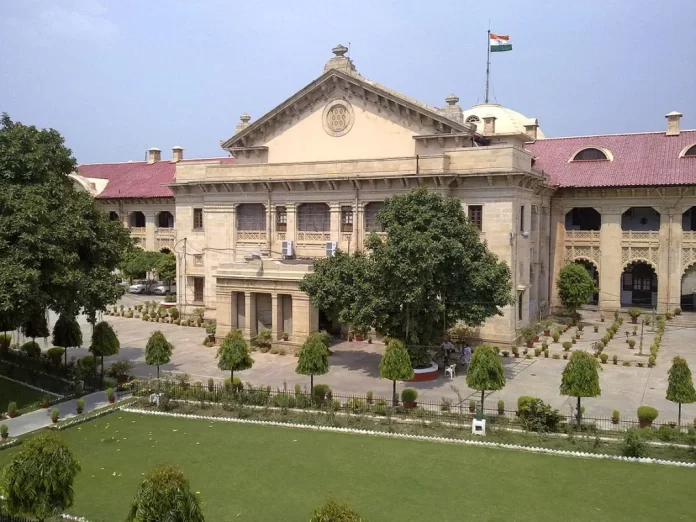The Allahabad High Court has observed that a person professing Islam cannot claim the right to a live-in relationship, particularly when he has a living spouse.
The Division Bench of Justice Attau Rahman Masoodi and Justice Ajai Kumar Srivastava recently noted that when the marital behaviour of citizens was regulated under both statutory and personal laws, the customs were bound to be given equal significance.
It said the customs and usages were an equal source of law recognised by the Constitution as the law made by a competent Legislature. Once there was a recognition of the customs and usages as a valid law within the framework of the Constitution, even such laws became enforceable in an appropriate case.
The constitutional protection under Article 21 would not lend an ‘un-canalized’ support to the right to a live-in relationship when the usages and customs prohibited such relations between the two individuals.
The Bench ruled that a person reposing faith in Islam could not claim any rights in the nature of a live-in-relationship, particularly when he had a living spouse.
The High Court made the observations while hearing a petition seeking quashing of a kidnapping case against a man and the directions not to interfere in the relationship of a Hindu-Muslim couple.
The Bench noted that the couple had filed a petition earlier too for the protection of their liberty. From the record, the Division Bench found that the Muslim man was already married to a Muslim woman with a five-year-old daughter.
It further noted that the High Court was told that the Muslim man’s wife had no objection to his live-in relationship as she was suffering from certain ailments.
The man apprised the Bench in his latest petition that he has given triple talaq to his wife.
The High Court directed the Police on April 29 to produce the Muslim man’s wife and also asked him and his live-in partner to remain present.
On April 30, the Court found some ‘alarming’ facts. The Division Bench was told that the man’s wife was not residing in Uttar Pradesh as claimed by him but in Mumbai with her in-laws.
The High Court then noted that the petition seeking quashing of the kidnapping case was the one, which actually sought legitimisation of the live-in relationship between the Hindu woman and the Muslim man.
It said this relief was sought in a situation where petitioner No. 2 belonging to a different religion was already married and had a minor child of five years of age. The religious tenets to which the petitioner No. 2 belonged, did not permit a live-in-relationship during the subsisting marriage.
The High Court ruled that the position would have been different, if the two persons were unmarried and being major, chose to lead their lives in a way of their own.
It said the constitutional morality in that situation may come to the rescue of such a couple and the social morality settled through the customs and usages over ages may give way to the constitutional morality and protection under Article 21 of the Constitution of India may step in to protect the cause.
The High Court said that any further continuation of the live-in relationship could not be granted while looking at the rights of the wife as well as the interest of the minor child.
The Division Bench further noted that the constitutional morality and social morality in the matter of a marriage institution were required to be balanced. Otherwise, social coherence for achieving the object of peace and tranquility in the society would fade and disappear.
The High Court said it strongly deprecated the direction for continuation of a live-in-relationship, as has been prayed for in the present writ petition, denying notwithstanding the fact that the constitutional protection remained available to a citizen of India.
The High Court directed the police to escort the man’s live-in partner to her parents’ home and submit a report regarding it.
The Division Bench said that it next went into the question of concealment of material facts and found that the counsel appearing in the two cases has risked at his own cost to abuse the process of law.
The petitioner was represented by Advocates Dhananjai Kumar Tripathi, Devendra Verma, Kajol and Tanupriya.
Advocate SP Singh appeared for the State, while Advocate Suyansh Kumar Pandey represented the complainant.


